In a world where everyone seems to have a mini-computer in their pocket, healthcare is getting a major tech upgrade. Mobile apps for healthcare are transforming the way people manage their health, making doctor visits as easy as ordering pizza. Imagine tracking your fitness goals while binge-watching your favorite show or scheduling a virtual consultation without leaving your couch. Sounds dreamy, right?
Mobile Apps For Healthcare
Mobile apps for healthcare streamline various processes, enhancing both patient experience and healthcare delivery. These applications foster improved communication between patients and providers while making health management user-friendly.
Importance In Modern Healthcare
Mobile apps play a crucial role in modern healthcare. They enable patients to monitor health metrics like blood pressure and glucose levels efficiently. Timely access to medical information empowers users to make informed decisions. Enhanced connectivity allows for virtual consultations, reducing the need for in-person visits. Apps facilitate medication reminders, improving adherence to treatment plans. Such features collectively enhance the quality of care and patient engagement.
Target Users And Stakeholders
Healthcare apps cater to diverse users and stakeholders. Patients utilize these applications for tracking wellness and accessing medical resources. Healthcare providers leverage apps for managing appointments and patient records digitally. Insurance companies benefit through improved claims processing and customer interactions. Administrators also grasp insights through analytics, optimizing resource allocation. Developers focus on creating user-friendly interfaces to capture a broader audience. Each stakeholder experiences unique advantages from the growing landscape of mobile healthcare solutions.
Types Of Mobile Apps For Healthcare

Mobile apps in healthcare come in various forms, each serving distinct purposes. These applications enhance patient experiences and streamline healthcare delivery.
Fitness And Wellness Apps
Fitness apps focus on health improvement through activity tracking, calorie counting, and goal monitoring. Users access personalized fitness plans that promote weight management and overall wellness. Popular examples include MyFitnessPal and Strava. These tools empower individuals to engage more actively in their health journeys. Regular updates and community features foster motivation and accountability among users. Integrating wearable devices further amplifies functionality, allowing real-time data syncing for precise health insights.
Telemedicine Apps
Telemedicine apps facilitate virtual consultations with healthcare professionals, ensuring access to care from any location. These applications break geographical barriers, making healthcare more accessible for patients in remote areas. Many platforms, like Teladoc and Doctor on Demand, enable users to book appointments, conduct video visits, and receive prescriptions electronically. Immediate access to medical advice saves time and reduces the need for in-person visits. Enhanced privacy features also promote security during online consultations, making patients feel more comfortable discussing sensitive issues.
Medication Management Apps
Medication management apps assist individuals in adhering to prescribed regimens, minimizing risks associated with missed doses. These applications provide reminders and dosage tracking to enhance medication compliance. Users can access information on drug interactions and side effects, fostering informed decision-making. Some popular examples include Medisafe and MyTherapy. Integration with healthcare providers allows seamless communication regarding medication adjustments. User-friendly interfaces contribute to more effective management of chronic conditions, ultimately improving patient outcomes.
Key Features Of Healthcare Apps

Mobile healthcare apps incorporate essential features that enhance functionality and user experience. These features prioritize patient engagement, streamline healthcare delivery, and ensure data security.
User Experience And Interface Design
User experience significantly influences the adoption and effectiveness of healthcare apps. Intuitive interfaces facilitate navigation, helping users find vital information quickly. Engaging designs attract users, encouraging regular interaction with the app. Visual elements should guide users toward key functionalities without unnecessary complexity. Regular updates and feedback loops ensure user needs evolve with app capabilities. Simplified onboarding enhances initial user experiences, promoting sustained usage.
Data Security And Privacy Compliance
Data security holds paramount importance in healthcare applications. Sensitive personal health information requires robust encryption methods to protect against unauthorized access. Compliance with regulations such as HIPAA establishes necessary standards for data handling and storage. Regular security audits and updates help identify vulnerabilities and promote trust among users. Transparency regarding data collection practices ensures users feel confident about information usage. Implementing authentication steps, like two-factor authentication, adds an additional layer of protection for sensitive data.
Benefits Of Mobile Apps In Healthcare

Mobile apps significantly improve healthcare delivery and patient experiences. They contribute to better health outcomes through various features.
Improved Patient Engagement
Mobile apps facilitate communication between patients and healthcare providers. Patients can access their health records easily, enabling informed decision-making. Regular reminders for medications enhance adherence to treatment plans. Tracking health metrics engages patients actively in their own care. Users receive personalized feedback and recommendations, reinforcing a sense of accountability. Data from these app interactions enhances overall satisfaction with healthcare services.
Enhanced Access To Care
Mobile apps bring healthcare services directly to patients. Virtual consultations break geographical barriers, ensuring remote patients receive timely care. Users can schedule appointments with minimal wait time, making access more efficient. Telemedicine options allow patients to reach specialists not available locally. Additionally, 24/7 access to medical information empowers users to make informed choices. This convenience fosters a more inclusive healthcare environment.
Challenges And Limitations
Mobile apps for healthcare face several challenges that hinder their effectiveness. These obstacles affect both users and developers.
Technological Barriers
Technological barriers impede the widespread use of healthcare apps. Compatibility issues often arise between different devices and platforms, limiting user access. Many users lack the necessary technological literacy to navigate complex interfaces. Network connectivity can also become a problem in rural or underserved areas, resulting in disrupted access to services. Additionally, varying levels of smartphone adoption impact the potential user base. These issues collectively reduce the overall efficacy of mobile health solutions.
Regulatory Hurdles
Regulatory hurdles pose significant challenges in the development and deployment of healthcare apps. Compliance with regulations such as HIPAA ensures data privacy, but can also complicate app functionality. Developers often encounter lengthy approval processes, delaying the introduction of essential features and updates. Moreover, navigating different regulations across regions may restrict app availability and growth. These constraints can limit innovation in technology, affecting user experience and access to care.
Future Trends In Mobile Healthcare Apps
Mobile healthcare apps continue to evolve, introducing innovative solutions that enhance patient care and engagement. With technological advancements, the future of these apps looks promising.
AI And Machine Learning Integration
Artificial intelligence and machine learning significantly enhance healthcare apps by providing personalized insights and predictive analytics. Using algorithms, these technologies analyze user data, allowing tailored health recommendations and enabling proactive management of conditions. Improved diagnostics help healthcare professionals identify patients’ needs more accurately. In addition, natural language processing capabilities facilitate better communication between patients and providers, making interactions seamless. Integrating AI and machine learning also fosters the development of chatbots that assist with scheduling appointments and answering common health queries.
Expansion Of Wearable Technology
Wearable technology plays a crucial role in the future of mobile healthcare apps. Devices like smartwatches and fitness trackers monitor vital signs, activity levels, and sleep patterns in real time. By syncing with mobile apps, these wearables provide users with comprehensive health insights that promote lifestyle changes. Users benefit from immediate feedback that encourages goal achievement and accountability. Healthcare providers access valuable data from these devices, leading to improved patient management and tailored treatment plans. Moreover, the integration of wearables with telemedicine platforms enables remote monitoring, ensuring continuity of care while enhancing accessibility for patients, particularly in underserved areas.
Mobile apps are transforming the healthcare landscape by making health management more accessible and efficient. They empower patients to take charge of their health through features like medication reminders and virtual consultations. As technology advances the integration of AI and wearable devices will further enhance the user experience and improve patient outcomes.
Despite the challenges in technology and regulation the future remains bright for mobile healthcare solutions. Continuous innovation and a focus on user engagement will drive the development of apps that meet the evolving needs of patients and providers alike. Embracing these advancements will lead to a more connected and inclusive healthcare system that benefits everyone involved.

